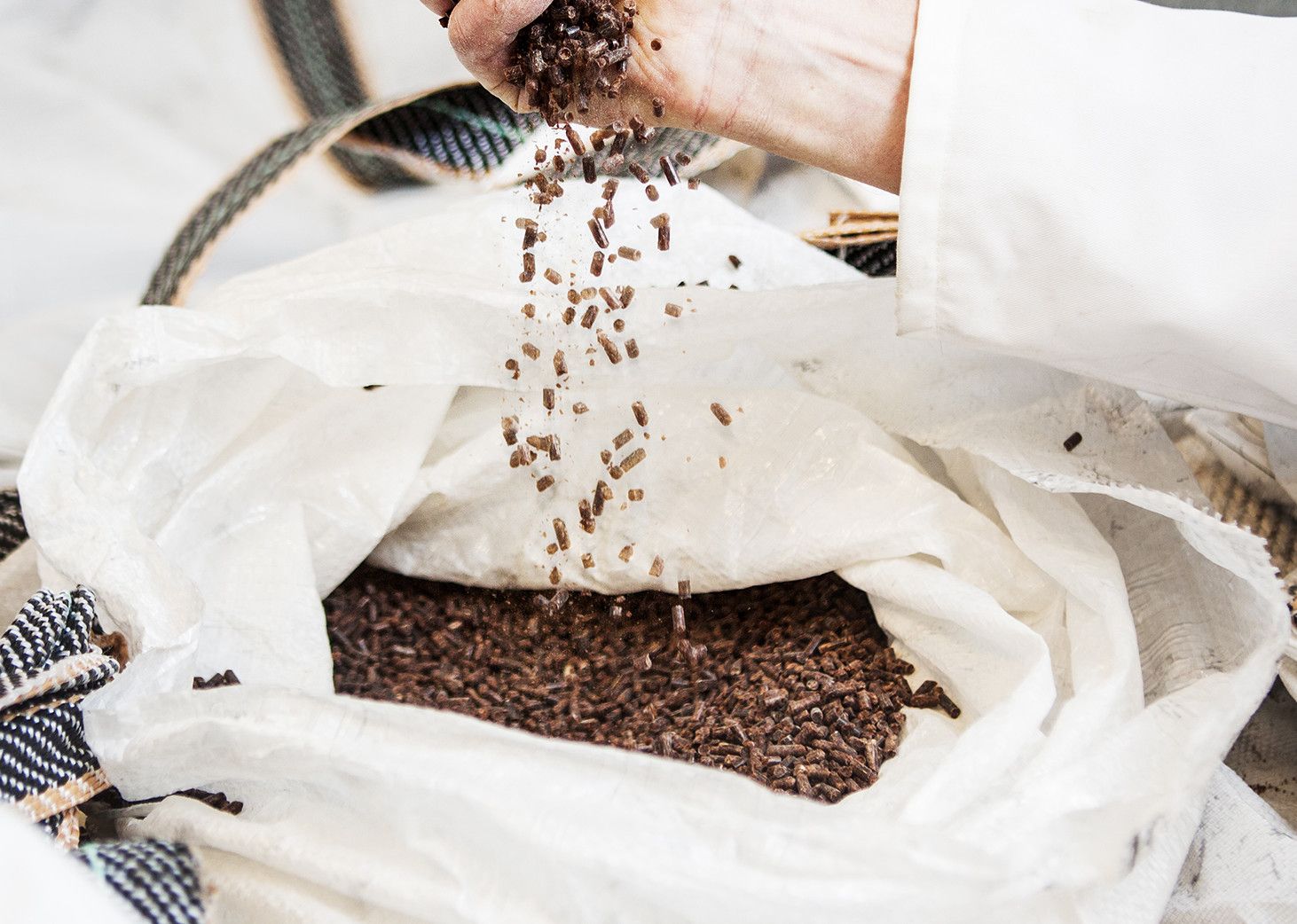Calysta, a company manufacturing sustainable fish and livestock feed from soil microbes, has raised $30 million in Series C funding from a bevy of high-profile investors, including global agribusiness giant Cargill.
US pension fund the Municipal Employee Retirement System (MERS) of Michigan and multi-family office Bessemer Trust were the other new investors in the round. Existing investors Aqua-Spark, the Dutch sustainable aquaculture fund, technology VC Walden Riverwood Ventures, and Pangaea Ventures, also contributed to the round.
“Bringing on these high-profile investors is a major win for the company,” Mike Velings, co-founder of Aqua-Spark told AgFunderNews. “It’s totally validating what Calysta is doing.” Aqua-Spark first invested in Calysta in January 2015 when it raised $10 million at Series B. It added a further $4.1 million in this C round.
The investment from Cargill will also involve a strategic collaboration between the two businesses on North American manufacturing and global marketing of Calysta’s ‘FeedKind’ product range.
“This collaboration with Cargill, a world leader in fermentation and protein production, is expected to dramatically accelerate market introduction of FeedKind protein at commercial scale,” said Alan Shaw, Calysta’s president and CEO in a statement. “We are also very pleased to add Bessemer and MERS, investors who bring a long-term view of capital deployment, to Calysta’s distinguished group of investors.”
“Calysta is providing the aquaculture industry with a proprietary sustainable alternative to conventional fishmeal ingredients,” he added. “This, in turn, addresses the widely-recognized concern about a worldwide shortage of protein, a serious potential threat to global food security.”
Calysta produces feed, as well as energy and other industrial materials, through the biotransformation and gaseous fermentation of sustainable, low-cost feedstocks such as soil and methane.
It recently announced plans to open an R&D facility in the UK after winning a £2.8 million ($4.1 million) grant from the UK government. The ‘Market Introduction Facility’ will involve research critical to commercializing Calysta’s feed product FeedKind.
There are few if any, other fish feed manufacturers offering the same quality and quantity of biological fish feed at this time, according to Velings, especially with the Cargill collaboration. “There are very few alternatives that have the potential to go to scale like that and very few that have the same sustainable character that Calysta’s products do.”
Aqua-Spark, which is focused on investing in sustainable aquaculture projects and technologies, recently made another investment in a Norwegian halibut farm. Aqua-Spark invested $2.75m in Sogn Aqua to scale up production to 800 tons and Velings thinks the farm would benefit from using Calysta feed. “This is the only area I would change in their production; they are using organic and recyclable feed, but using Calysta would really make it the ultimate sustainable farm,” he said.
“This is the only area I would change in their production; they are using organic and recyclable feed, but using Calysta would really make it the ultimate sustainable farm,” he said.
Sogn Aqua has developed a unique and patented system for growing halibut on land. Its water system pumps water from the local fjord through the farm and then back again to the bottom of the fjord after removing any pollutants. And 95 percent of materials used are recyclable, according to the company. The feed conversion ratio and the large size of the fish make it a very attractive investment, according to Velings.
Aquaculture has had a slow entry into the private investment market with deals in the sector few and far between. But there have been some high-profile investors backing the industry in recent months; private equity giant KKR recently invested in a Chinese fish feed company, while Cargill invested $30 million in an Ecuadorian shrimp feed facility a part of a continued expansion in the space. Agribusiness private equity fund Paine & Partners has also made several bets in the space and there are some smaller players like Aqua-Spark which have launched dedicated funds for the sector including Switzerland-Based Bonafide and New York-based Aquacopia. Events in the sector have also gathered pace such as business competition Fish 2.0, which Aqua-Spark sponsored, and SeaWeb Seafood Summit, which took place this week.
Agribusiness private equity fund Paine & Partners has also made several bets in the sector, and there are some smaller players like Aqua-Spark, which have launched dedicated funds for the sector including Switzerland-Based Bonafide and New York-based Aquacopia. We also recently reported on an exciting offshore mussel farm in California and are reporting from events in the industry such as business competition Fish 2.0.
*Watch out for our interview with SeaWeb Seafood Summit organizer Ned Daly next week.
Have news or tips? Email [email protected]





